Four reasons to support Ukraine’s struggle for victory

CIUS weekly report on North American media coverage of Ukrainian affairs, 12–18 November 2023
Three publications (Foreign Policy, The National Interest, Foreign Affairs) were selected to prepare this report on how the situation in Ukraine has been portrayed in the North American press during the past week. The sample was compiled based on their impact on public opinion as well as on their professional reputation, popularity among the readership, and topical relevance. These publications represent centrist viewpoints on the political spectrum.
This report covers only the most-read and relevant articles about Ukraine, as ranked by the respective North American publications themselves in the past week. Its scope covers promoted articles on home pages and articles from special sections on Ukraine, with the hashtag #Ukraine, from the paper editions of the publications, and about Ukraine from opinion columns and editorials.
Topics featured in the selected articles:
- The world and Ukraine: the Soviet invasion of Afghanistan is a benchmark for responding to Russia’s war against Ukraine; arguments in favour of further support for Ukraine.
- Russia in war: arguments supporting tougher sanctions against Russia; the Kremlin is the nefarious force driving the basic principles of modern Russian ideology.
Main arguments:
Sanctions are failing to do harm in Russia. John V.C. Nye and Maria Snegovaya (Foreign Policy) write that in order to create a more effective sanctions regime against Russia, the West needs to tighten control over Moscow’s oil revenues. Despite threats by Western politicians to respond to Russia’s war against Ukraine with “sanctions from hell,” “in 2022 Russia earned even larger annual revenues from oil than in 2021, with 2022 receipts jumping by 28 percent.” Revenues from the sale of oil and natural gas account for about 45% of Russia’s federal budget. According to the authors, as long as Moscow has this money, it will buy loyalty at home, circumvent sanctions on the international arena, and increase military pressure on Ukraine. Despite the fact that Western sanctions diminished Russian budget revenues in early 2023, Moscow has learnt to circumvent them. Given the recent favourable dynamics of oil prices, the effectiveness of sanctions efforts has been more than offset by the workarounds: “The state’s energy revenues grew by 15 percent this September and more than doubled to 1.635 trillion rubles ($17.63 billion) from September to October.” These revenues have allowed Moscow to reduce its budget deficit and increase military spending: “A new 2024 draft budget projects a defense spending hike from 3.9 percent to 6 percent of GDP.” Another challenge that needs to be addressed by the West is smuggling of critical components in the tech and defense sector: “Data reveals that Russia [is still obtaining] as many critical components for its military as before 2022, including computer components as well as electric and electronic equipment—primarily through Chinese intermediaries.” According to Nye and Snegovaya, “Unless there is a coordinated, well thought out, and long-term-oriented effort, sporadic solutions dominated by partisan considerations are unlikely to deliver.”
The Soviet invasion of Afghanistan provides a guideline for responding to Russia’s war against Ukraine. Artur Kalandarov (National Interest) writes that in addition to expressing their commitment to Ukraine’s sovereignty, US officials need to emphasize that this war’s ultimate goal is Ukraine’s victory. While the United States and its allies have provided unprecedented military and financial assistance to Ukraine, imposed the strongest of the world’s announced sanctions against Russia, and united the global community in countering Moscow’s aggression since the start of the full-scale invasion in 2022, this is not enough. Kalandarov declares that the US and other allies of Ukraine must formulate a clear goal in Russia’s war against Ukraine: “The withdrawal of Russian troops from all occupied Ukrainian territory.” According to the author, such a position is not unprecedented or new in world history. The US had a similar experience during the Soviet Union’s invasion of Afghanistan: “Despite different global outlooks and foreign policies, Presidents Carter, Reagan, and Bush firmly maintained that US assistance would continue until there were no Soviet soldiers left in Afghanistan. This strategy ultimately convinced Soviet leadership that its position in Afghanistan was untenable.” Kalandarov maintains that by clearly stating that the presence of Russian troops within Ukraine’s borders is unacceptable and that Kyiv’s victory is the primary goal, “the United States will improve the perception of its commitment to Ukraine and…over time, sow doubt in the Kremlin about Russia’s prospects for success.”
Four reasons to support Ukraine. Michael McFaul (Foreign Policy) argues that assistance to Ukraine is not charity but rather serves the US national interest. In the two years of the Russian-Ukrainian war, Kyiv and its allies have achieved a lot. These successes, however, risk being undermined by Washington’s declining support for Kyiv. According to McFaul, Ukraine’s defeat would weaken the US’s position on the world arena. That is why Congress should approve new aid to Ukraine as soon as possible—“not as a gesture of charity for Ukraine but as a hard-nosed and clear-headed investment in US security objectives.” Apart from the obvious moral argument in favour of supporting Ukraine, there are other compelling realpolitik reasons for increasing aid to Ukraine: (1) Ukraine’s victory will dramatically reduce the threat from Russia: “Without any direct US involvement in fighting Russia, US assistance has helped substantially degrade a major military threat to US allies and potentially the United States itself—a strategy called ‘offshore balancing’”; (2) the war’s outcome has clear implications for US security interests in Asia—about US support for Taiwan and the destruction of President Xi’s myth that “the United States is a declining, overextended power and that the democratic world can no longer act in unity for any sustained period”; (3) the outcome of the war will affect global US interests, with Ukraine’s victory allowing Washington to preserve the existing world order; and (4) the war’s outcome will have major implications for the contest between democracies and autocracies. According to McFaul, this is why “it is time for Congress to vote on a new assistance package for Ukraine. A yea vote is not only good for Ukraine but also a prudent investment in the national security of the United States.”
Putin’s ideology is a mixture of nationalism, grievance, and Kremlin mythmaking. Maria Snegovaya, Michael Kimmage, and Jade McGlynn (Foreign Affairs) write that Russia’s war against Ukraine has already caused much suffering. However, one person has hardly been affected by the war—President Vladimir Putin, “whose approval rating has remained at a steady high even as casualties from the conflict continue to mount.” The secret of Putin’s political stability is that he relies on ideology rather than socio-economic factors. Kremlin ideology has become a permanent feature of the Putin regime. In recent months, the Kremlin has released several documents to consolidate its dominant ideology: “In January 2022 …Putin released a special presidential decree that introduced a list of Russia’s spiritual and moral values.” Such steps are elements of a systematic effort to entrench a top-down ideology based on a vision of Russia as a separate civilization: “Putin has made consistent and increasing investments in education and memory politics—the shaping of mythologized understandings of the past for political purposes—to promote a particular vision of Russian identity.” The Kremlin’s ideology is based on the following principles: (1) the imperative of a strong, stable Russian state; (2) promotion of Russian exceptionalism and safeguarding the cultural conservatism that preserves it; and (3) fomenting worries about the possible collapse of Russian civilization. Many of the narratives disseminated by the regime rely on sentiments that are already deeply rooted in Russian society. Meanwhile, the share of the Russian population that is willing and able to counter these ideological trends is shrinking rapidly. However, in today’s Russia, the Kremlin does not have a monopoly on ideology; its narratives are “thin and performative, and therefore may not sustain the sacrifices demanded by war.” According to the authors, “the United States should fund diaspora communities and institutions that harbor different views of Russia’s past and of Russia’s future, and it should do what it can to project the journalism, the debates, the books, and the culture of this ‘other Russia’ back into Putin’s Russia. These efforts would constitute a longer-term investment in an ideologically diverse Russia and would help remind Russians that there are alternatives to the reigning ideology—that, in other words, another Russia is not impossible.”
Western allies need pragmatic approach to ensure Ukraine’s security, ambitious objectives. Richard Haass and Charles Kupchan (Foreign Affairs) point out that there’s a mismatch between Ukraine’s ambitious war aims and the available means, suggesting a shift from an offensive to a defensive strategy. “Kyiv’s war aims—the expulsion of Russian forces from Ukrainian land and the full restoration of its territorial integrity, including Crimea—remain legally and politically unassailable. But strategically they are out of reach, certainly for the near future and quite possibly beyond.” The authors suggest that the United States should lead efforts to forge a new policy centered on negotiating a cease-fire with Russia. This approach would aim to save lives, allow economic reconstruction, and demonstrate a workable strategy to maintain Western support, because “time will not be on Ukraine’s side if a high-intensity war drags on indefinitely.” Because Russia’s economy and its defence industrial base “are on a war footing,” and with the situation on the front line at a standstill, in the authors’ opinion it is “far preferable for both Kyiv and its supporters to embrace a new strategy that puts ends and means back into balance than to continue pursuing a course that has led to a dead end—and which could, before long, bring about a sharp decline in Western support for Ukraine.” Convincing President Volodymyr Zelensky and the Ukrainian public to alter their course poses a considerable challenge, given the just nature of their cause and the sacrifices already made. The authors, however, suggest that “what began as a war of necessity for Ukraine—a fight for its very survival—has morphed into a war of choice, a fight to recapture Crimea and much of the Donbas region in eastern Ukraine…. It makes far more sense for Ukraine to ensure that the bulk of the country under Kyiv’s control emerges as a prosperous and secure democracy than to risk the nation’s future in a long-shot military effort to reclaim territory still under Russian control. Ukraine’s emergence as a successful and resilient democracy capable of defending itself would constitute a resounding defeat of Russian ambition.”
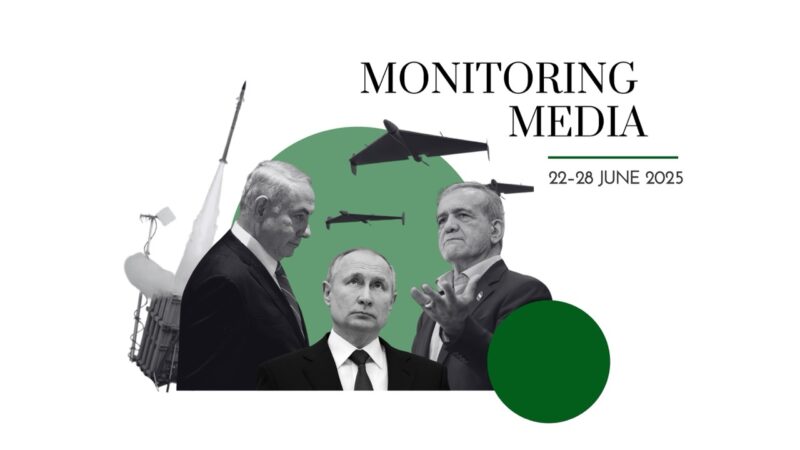
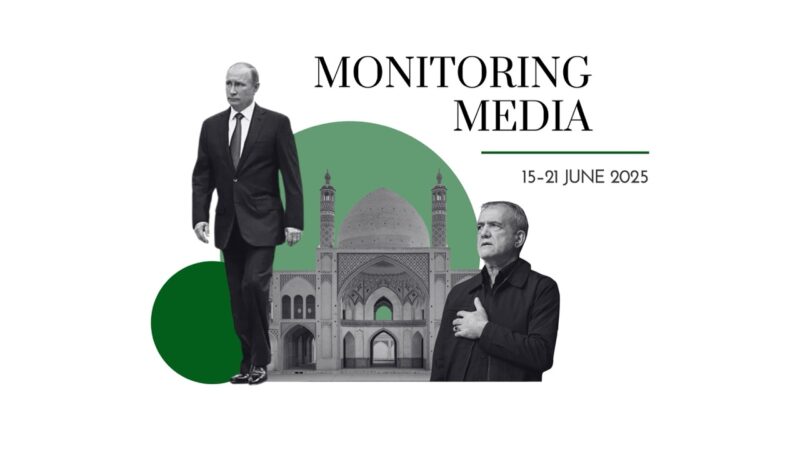
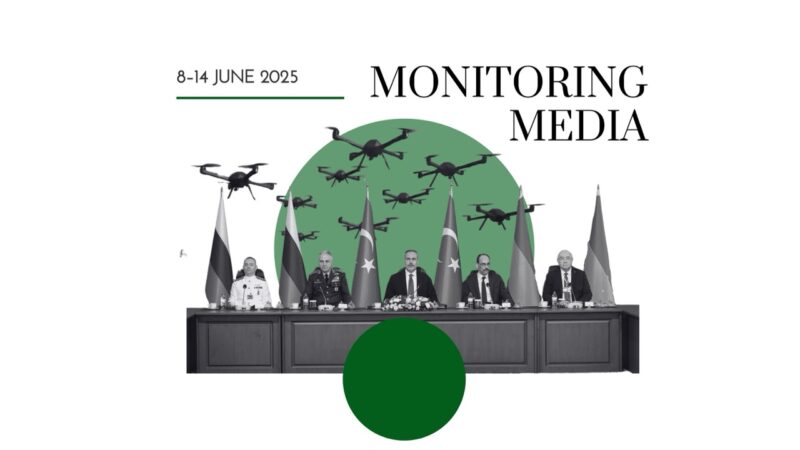

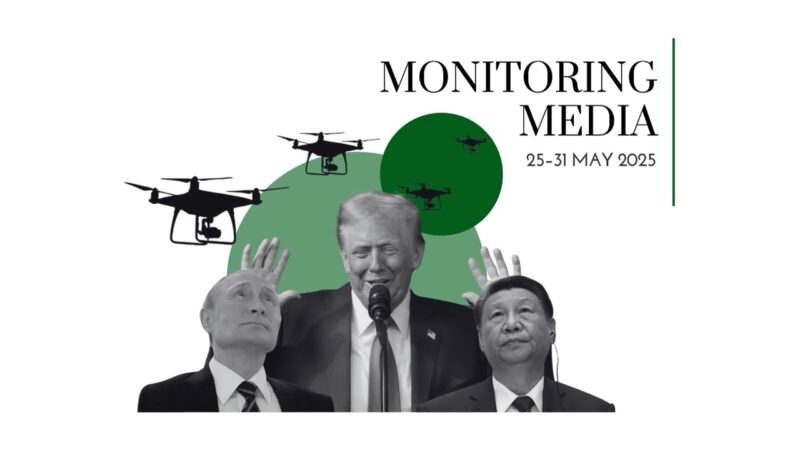
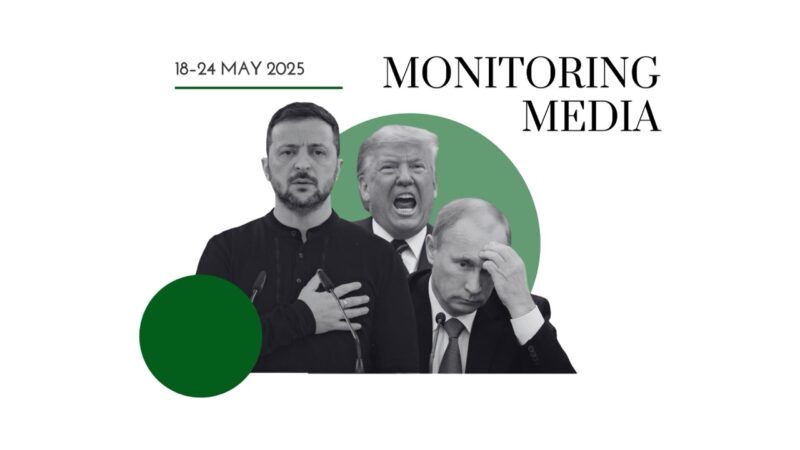
One thought on “Four reasons to support Ukraine’s struggle for victory”